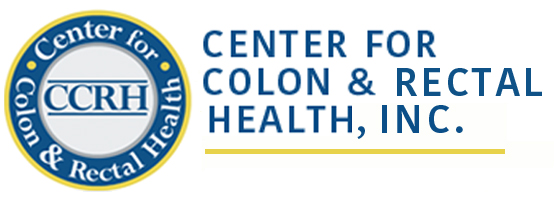Fecal Incontinence is the inability to control bowel movements making it difficult or impossible to hold gas, solid or liquid stool, or “silent leakage” causing unexpected leaking from your rectum. It can range from occasional leakage to a complete lack of bowel control. Be assured, this condition is much more common than is generally recognized. There is no need to feel embarrassed when discussing fecal incontinence with the caring medical staff and compassionate physicians at the Center for Colon & Rectal Health.
CCRH physicians understand the emotional and social consequences of fecal incontinence and have state-of-the-art techniques to diagnose and treat this embarrassing condition.
To better understand your condition, keep a list with dates, times, and the frequency you experience any unexpected leakage. Your list will assist your CCRH physician in understanding your specific condition. When you bring your list of daily living occurrences along with any questions to your appointment at the Center for Colon & Rectal Health, your CCRH physician will listen to your symptoms and take the time to answer any questions you may have.
Many patients with fecal incontinence may not be able to feel the urge for a bowel movement, and others feel the urgency but are not able to hold a bowel movement. These conditions affect millions of people who have symptoms disrupting their daily life. There are many causes including: side effects of pre-existing conditions such as diabetes; Parkinson’s disease and multiple sclerosis which may cause nerve damage; inflammatory bowel disease and irritable bowel syndrome; women’s health issues; stroke; aging; nerve or muscular damage as well as other intestinal symptoms.
Some younger women may experience fecal incontinence or pelvic floor problems which are usually caused by childbirth injury.
Many factors can affect the anal sphincter in women who have difficulty during pregnancy and/or delivery. Not always becoming immediately evident after labor and delivery, fecal incontinence may show up decades later, after menopause, when hormone levels begin to fall. In maturing women, the levels of estrogen and progesterone diminish. With the onset of menopause, hormones decrease in the body and the muscles may weaken causing both fecal and urinary incontinence.
The evaluation of fecal incontinence includes specialized testing (anal manometry, EMG, nerve testing, and endoanal ultrasound). The medical staff and physicians at CCRH are available to explain how the testing will be performed. The tests will occur at CCRH during a diagnostic office visit, and the test results measure the strength and function of the muscles and the function of the nerves that are related to fecal incontinence.
Most fecal incontinence symptoms will not require surgery. The majority of patients can be managed with medications, appropriate bowel regimens, and physical therapy that strengthens the pelvic floor muscles and trains patients to use muscles not otherwise used for continence. If the patient experiences improvement, your CCRH physician will advise you on the next steps to maintain your good health.
Another therapy for fecal incontinence, which may be recommended when appropriate, is something similar to a heart pacemaker. When the nerves to the sphincter muscles do not function well, a small medical device sending a direct stimulation to the nerve to improve muscle function may be discussed as an option, with a temporary test phase of the medical device and evaluations by your CCRH physician. If improvement is evident, your CCRH physician will review and discuss the options for permanent implantation of the device to manage fecal incontinence.
CCRH patients can be assured their utmost comfort is the priority of our staff. The most advanced testing procedures and test results are carefully evaluated and reviewed before making recommendations in the next steps for treatment of your specific condition. If surgery is recommended, your physician and the friendly and caring CCRH medical staff are available to answer any questions you may have about your specific fecal incontinence symptoms, physical condition, treatment, or recovery from surgery. When appropriate, your condition and treatment will be discussed with your family physician. The physicians at the Center for Colon & Rectal Health possess advanced expertise in the diagnosis and care of conditions of the colon, rectum, and anus providing those patients who suffer with fecal incontinence a commitment to improving their quality of life. The physicians and medical staff at CCRH assist patients through diagnosis, treatment, and recovery and are always available to answer any questions through every step of your journey to better health.
An online appointment request form is available on this website for your convenience in scheduling an appointment at the Center for Colon & Rectal Health.
More Information
Our goal is to provide you with a safe and comfortable environment. Every patient is different. We strive to offer you the most accurate and effective treatment options.
Please contact Bucks County’s premier colorectal group to schedule an appointment and to learn more.
St. Mary Medical Center
St. Clare Medical Building, Suite 130
1203 Langhorne-Newtown Road
Langhorne, PA 19047
215-741-4910


